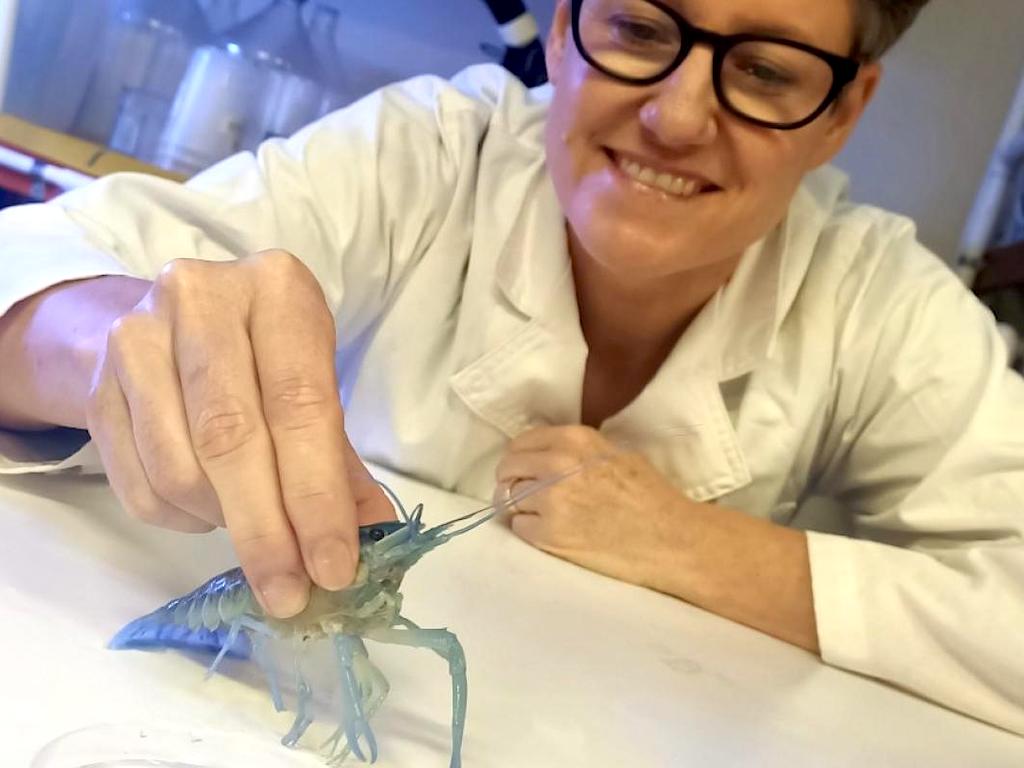2 Mins Read
New York-based cellular agriculture research institute New Harvest has just welcomed a new research fellow, Lisa Musgrove, who is investigating crayfish growth factors and cell-culture. Musgrove is an aquaculture researcher from the University of the Sunshine Coast (USC) and represents the first Australian to receive seed grant money from New Harvest.
Musgrove will be using the funding support for her research project on crayfish growth factors and cell-culture, supervised by USC GeneCology Research Centre scientist Dr. Tomer Ventura. The news was first reported in Protein Report, describing the investment as the first time an Australian has secured grant funding from New Harvest.
Speaking to the publication, Musgrove explains that knowledge and research into the cultivated crustaceans sector is still thin, and that there are only around ten startups around the world who are focused on developing cell-based seafood, among them Singapore’s lab-grown shrimp food tech Shiok Meats.
“Compared to many land-based species, there is a relative lack of crustacean-related data, and there are no published crustacean cell lines. We’re aiming to address this shortfall.”
The ultimate goal will be to find the factors and protocols needed to make the cells proliferate and differentiate into muscle, potentially leading to a myogenic crustacean cell line.
Lisa Musgrove
With the support of New Harvest, the project will focus on Redclaw crayfish, a freshwater species native to northern Australia and Papua New Guinea and is considered a premium seafood delicacy. Musgrove hopes to use cellular agriculture to regenerate the limb buds of this type of crayfish to develop growth factors and source muscle stem cells.
“The ultimate goal will be to find the factors and protocols needed to make the cells proliferate and differentiate into muscle, potentially leading to a myogenic crustacean cell line,” said Musgrove.
As a safer, healthier and more sustainable method to produce protein, the cultivated protein sector has been increasingly viewed as a turnkey solution to bolster food security in the wake of the coronavirus pandemic, which has exposed the vulnerability of traditional animal agriculture and other animal-dependent industries.
Crustacean production, in particular, will be a key market with huge opportunities for disruption, given growing fears about resurging aquaculture diseases such as Div1 virus inundating farms in China.
Compared to many land-based species, there is a relative lack of crustacean-related data, and there are no published crustacean cell lines. We’re aiming to address this shortfall.
Lisa Musgrove
So far, innovation in the crayfish alternative category is still in its infancy. Some food techs have created plant-based versions of the prized seafood, such as Beijing-based Zhenmeat, who recently debuted vegan crayfish made with seaweed, plant fibres and konjac extract. The product specifically targets Chinese consumers, who currently drive 90% of global crayfish consumption.
Meanwhile, Singapore-based Growthwell group has acquired a stake in Israeli company ChickP to develop the world’s first chickpea protein isolate that can be used to create Asia-specific vegan products, including a burger patty resembling crab or crayfish meat.
Lead image courtesy of Cellular Agriculture Australia via Protein Report.




